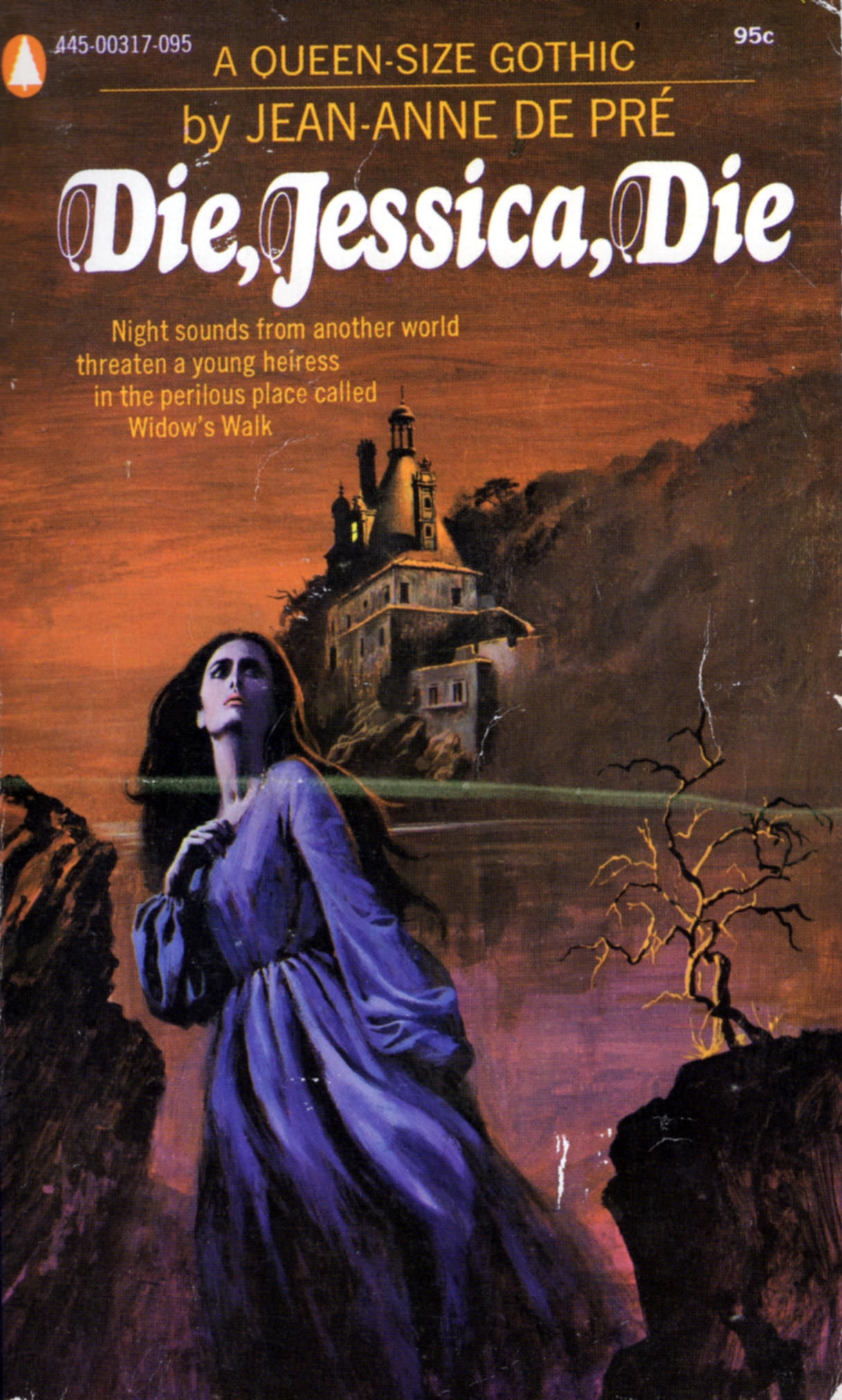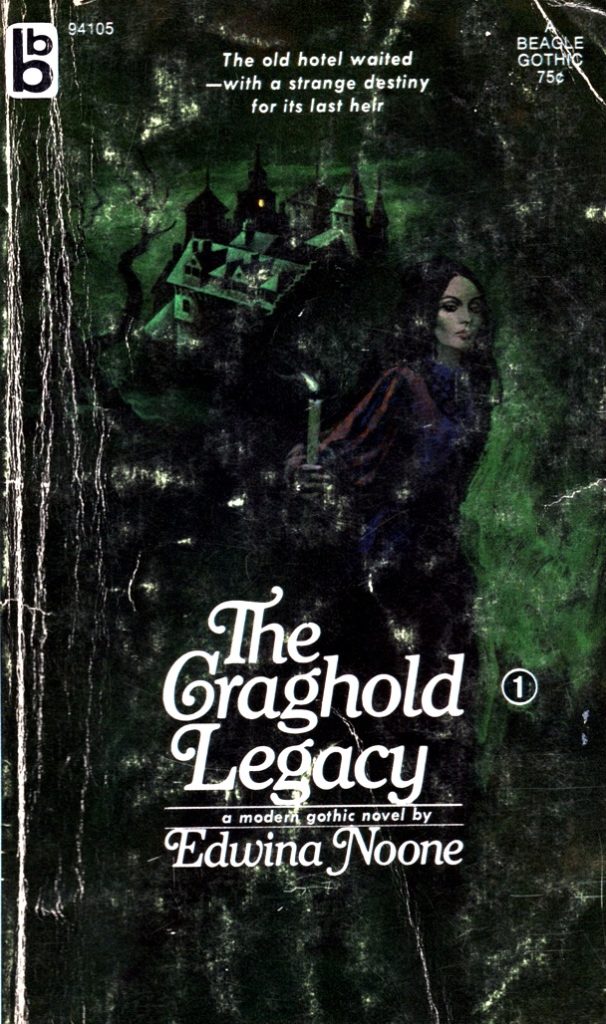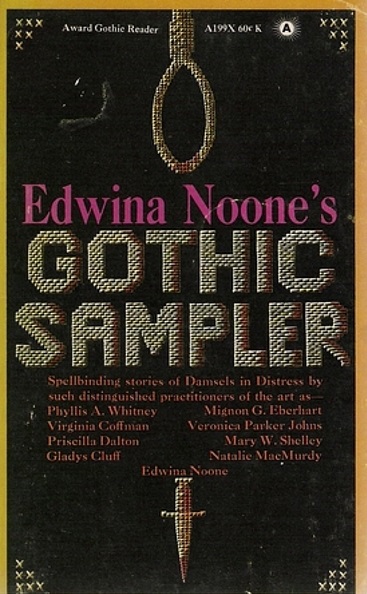
Die, Jessica, Die is a 1972 novel from the “Queen-Size Gothic” series. The series promotes itself as “greater in length and drama, richer in reading pleasure.” Presumably this appeals to readers who found mass-market gothic novellas of the 1960s and ‘70s too short and simplistic. In reality, the most “queen-size” thing about the series is thicker pulp paper (which makes 285 pages look more like 400) and a large font. Sometimes the plots are juicier than typical, but often they are as basic as any gothic romance paperback.
No exceptions here. Despite its alluring title and a narrator who promises much diabolical intrigue, there are no unconventional surprises.
As Jessica returns home after four long years at college, she finds her father’s mansion much-changed. There’s a new housekeeper she’s never met before, an attractive handyman roaming about, a strange doctor who administers tranquilizers at the first sign of distress, and a “burly” lawyer who may or may not be seducing Jessica for his own gain.
Read more “Jean-Anne de Pré – Die, Jessica, Die (1972)”


